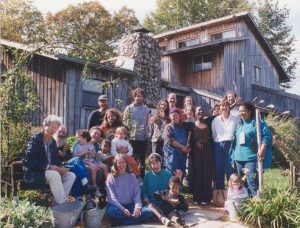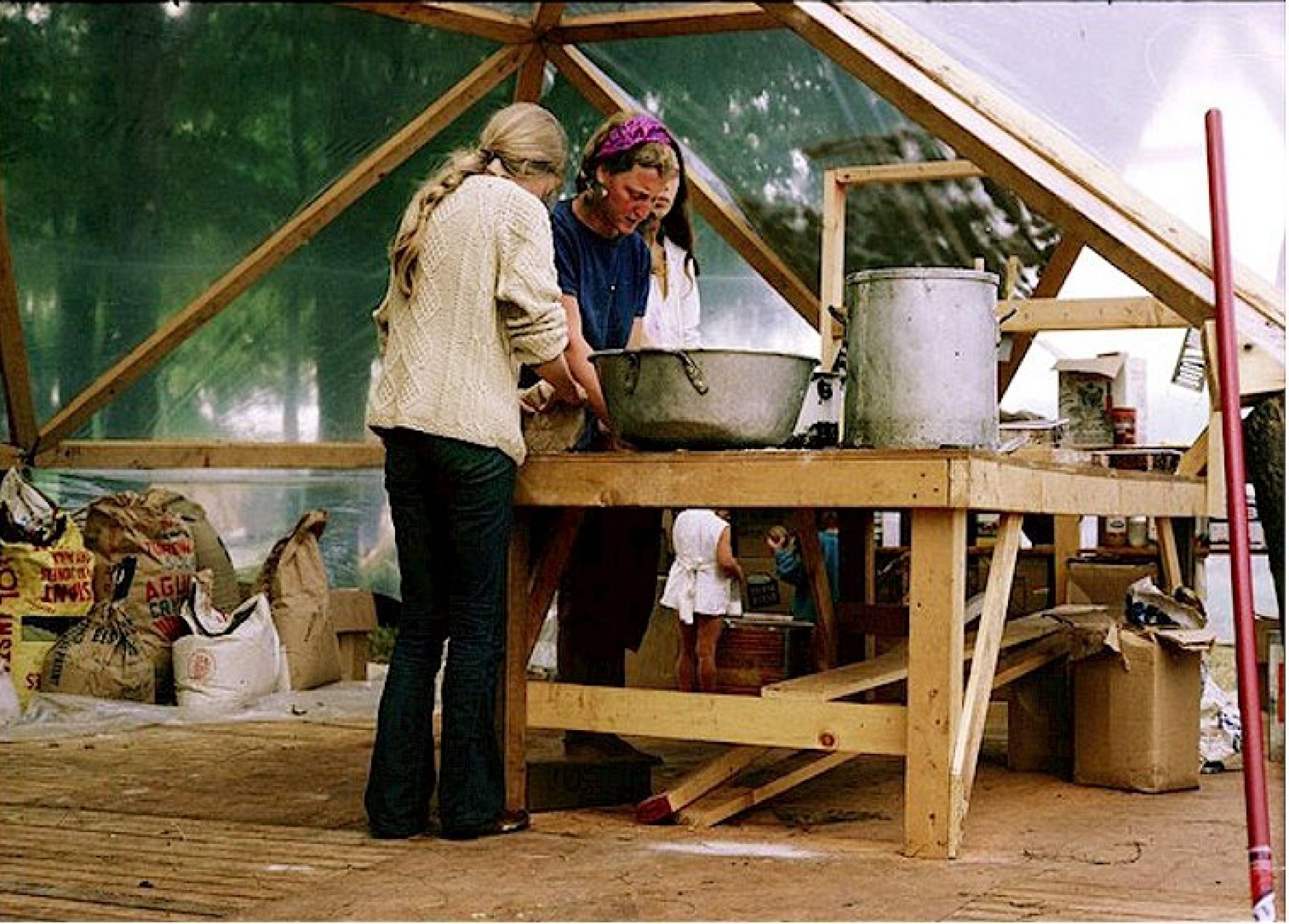The common theme that I’ve found in the communities of Twin Oaks and Acorn is that they need to be small and like minded. Maybe this is obvious, but egalitarianism seems hard to maintain if there isn’t a smaller population, as well as an egalitarian form of government.
Here is a photo of the Twin Oaks village and some of the (very happy) residents:

What I found most interesting is when Reece is in Twin Oaks and Adder explains to him their socialist philosophy and how it works. At Twin Oaks, there is “zero motivation to work hard, perform well, or to be innovative or creative” (167), yet the commune members all engage in art making, personal growth, creating/maintaining business. The motivation at Twin Oaks is intrinsic, and springs from the concept of that a positive, healthy environment will maintain positive, healthy people that will sustain the environment.
At both Twin Oaks and Acorn, however, they rely on the American capitalist system by selling a company hammocks, tofu, or seeds.
I wonder if the people of these communes generally live under a utopian illusion where their commune is entirely self sustaining, or if they are okay with their minimal participation in the capitalist economy.
Something Reece says, in part, answers my question; “their purpose seems more about honoring the blueprint for a cooperative, nonexploitive living, not taking down the system they have fled” (175). The mission of these communes appears to be to coexist quietly and humbly within the frame of American society, not to detest it and exist separately as many would think of when hearing of a “hippy commune”.
I think the ideas of Thoreau’s self reliance and his emphasis on minimalism provides a sustainable philosophy for intentional communities. If one takes his or herself away from desires of luxury and focuses on basic needs from himself then people can maintain themselves, by themselves, with the company of nature.
